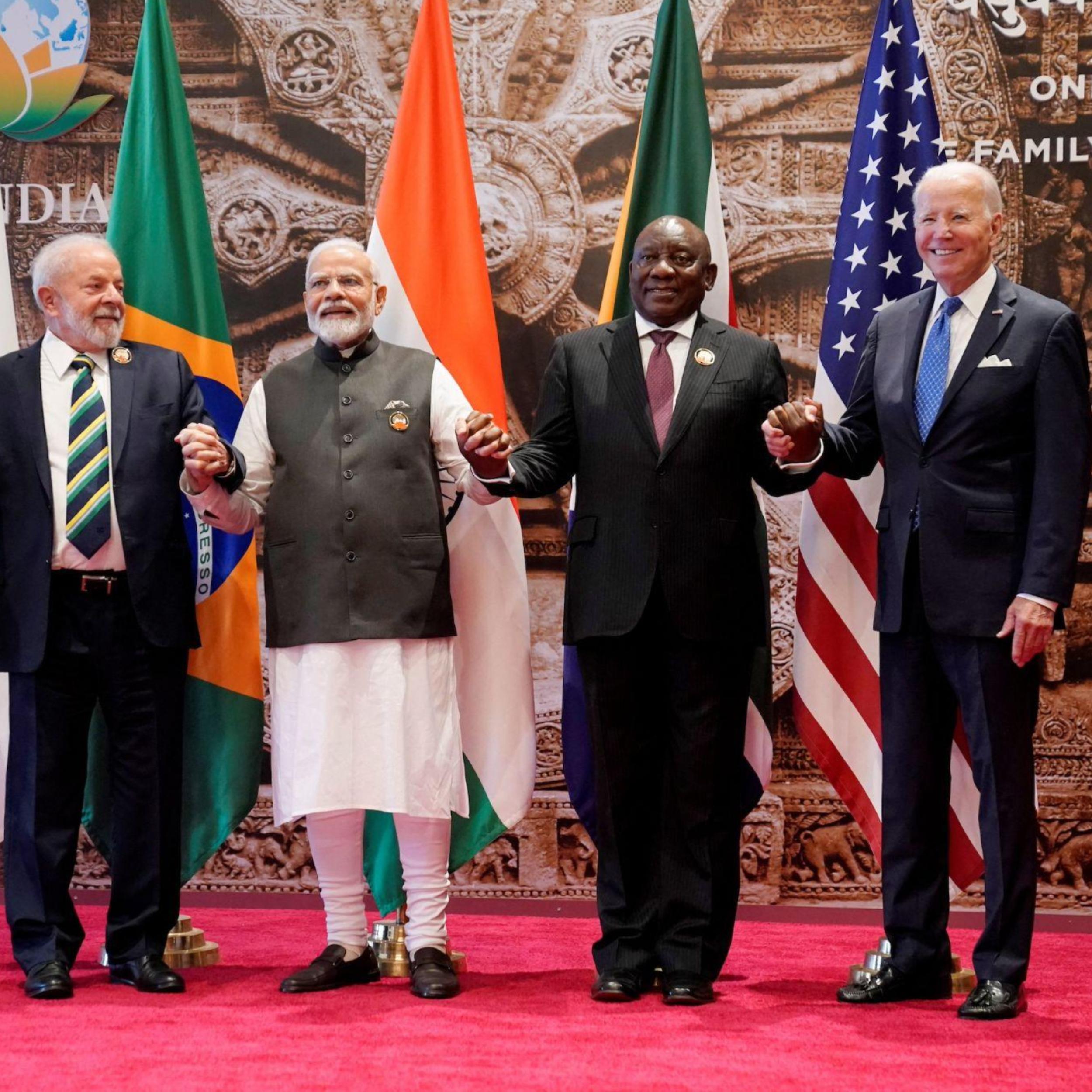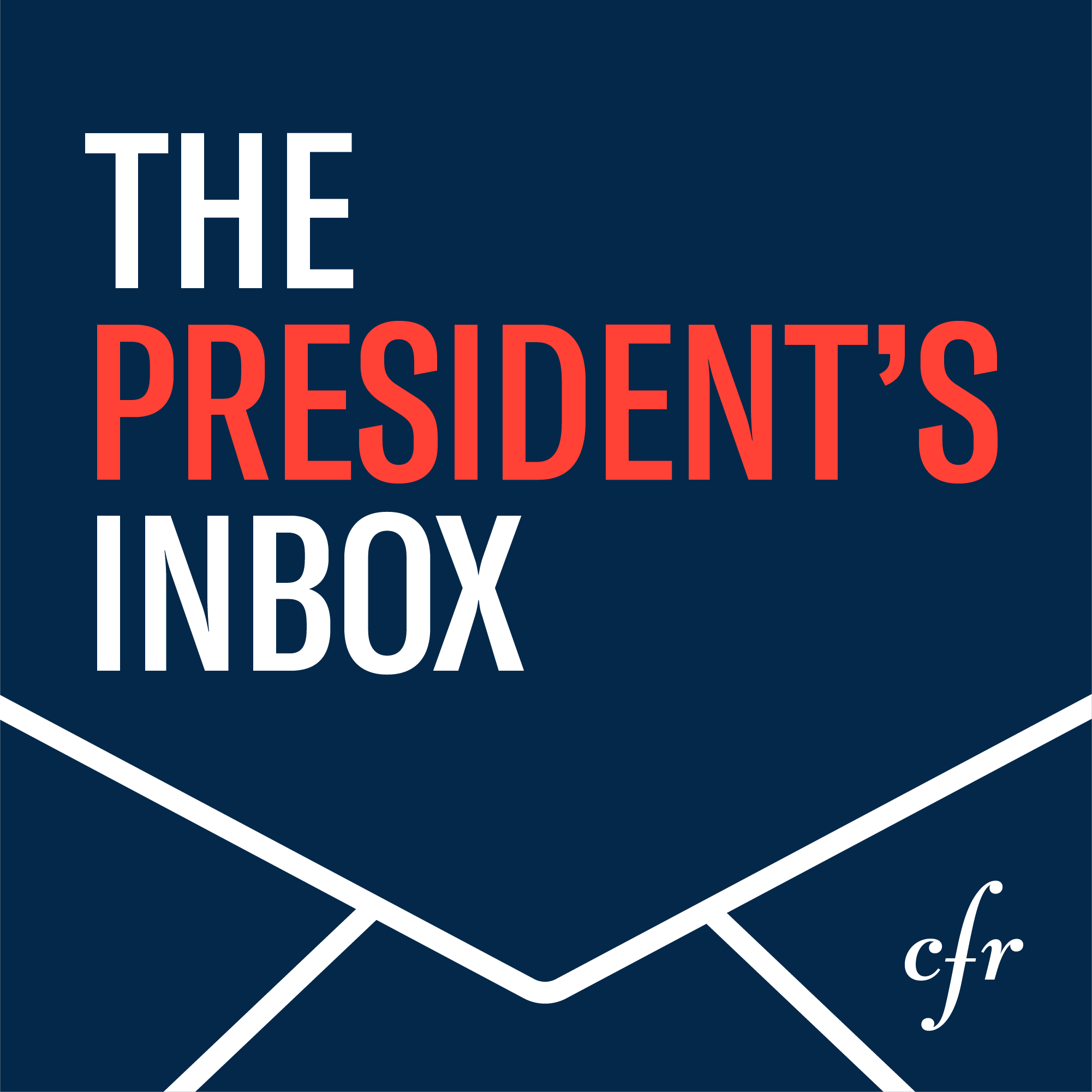
Deep Dive
What is the definition of grand strategy according to Charles Kupchan?
Grand strategy is the intellectual architecture that guides statecraft, balancing strategic ends with available means such as economic, military, and political resources. It also includes guiding assumptions about how the world works and the main fault lines in international relations.
Why does Charles Kupchan describe himself as a liberal realist?
Kupchan identifies as a liberal realist because he believes in the importance of power in international relations but also recognizes that peace and cooperation are possible, as seen in relationships like the U.S.-Canada border. He also emphasizes the role of domestic politics and ideological differences in shaping foreign policy.
How does Charles Kupchan view the current international system?
Kupchan sees the international system transitioning from unipolarity to multipolarity, with the U.S. facing a more fragmented world where power is increasingly diffused among multiple actors like China, India, and other emerging economies. He believes this will lead to shifting and unstable coalitions.
What is Charles Kupchan's view on U.S. grand strategy after World War II?
Kupchan identifies two main periods: the era of isolationism from 1789 to 1941, where the U.S. avoided strategic commitments, and the era of liberal internationalism from 1941 onward, where the U.S. sought to project power and spread its ideals through partnerships and multilateralism. He sees the current era as a transition to a new grand strategy.
Why does Charles Kupchan believe the U.S. cannot return to isolationism?
Isolationism is no longer feasible due to the interconnectedness of the modern world, including economic interdependence, rapid missile technology, and global challenges like pandemics. However, Kupchan argues that the U.S. should avoid overreach and adopt a more sustainable foreign policy that aligns with domestic support.
What role does Charles Kupchan see for countries like India, Brazil, and Nigeria in the future international order?
Kupchan believes these countries will play a pivotal role as they navigate between the U.S.-led Western bloc and China-led groupings. They will seek deals that benefit their own interests, making it essential for the U.S. to understand and compete with China's offers in areas like infrastructure and investment.
How does Charles Kupchan view the relationship between Russia and China?
Kupchan sees the Russia-China relationship as pragmatic and not deeply rooted, driven largely by the personal ties between Putin and Xi Jinping. He believes there are opportunities to drive a wedge between them, especially as underlying tensions and mutual distrust persist in their bureaucracies and publics.
What does Charles Kupchan suggest as the goal of U.S. grand strategy in a multipolar world?
Kupchan advocates for a pragmatic approach that involves both competition and cooperation with rising powers like China. The goal should be to manage the transition to a multipolar world, avoid great power war, and tackle global challenges like climate change and nuclear proliferation through shared leadership.
Why does Charles Kupchan believe the liberal rules-based order is not universally appealing?
Kupchan argues that many countries in the Global South view the liberal rules-based order as a system that benefits the West and American power, rather than a fair and equitable global framework. He suggests the U.S. needs to better understand and address the needs of these countries to maintain influence.
What is Charles Kupchan's view on the neoconservative strategy of primacy?
Kupchan sees neoconservatism as closely aligned with a strategy of primacy, which seeks to maintain U.S. dominance and spread democracy by force if necessary. He believes this approach led to overreach and unsustainable commitments, contributing to the current domestic skepticism about foreign policy.
- Grand strategy is the intellectual architecture guiding statecraft.
- It's a blueprint balancing strategic ends and economic, military, and political means.
- Essential for effective statecraft, avoiding reactive decision-making.
Shownotes Transcript
Charles A. Kupchan, a senior fellow at CFR and a professor of international affairs at Georgetown University, sits down with James M. Lindsay to discuss how the United States should adapt to an era of renewed great power competition and domestic disagreement over what it should seek to achieve abroad. This episode is the third in a special TPI series on U.S. grand strategy.
This episode first aired: July 30, 2024
Mentioned on the Episode
“A New U.S. Grand Strategy: The Case for Liberal Internationalism, With John Ikenberry),” The President’s Inbox
* *
Richard Haass*, *Foreign Policy Begins at Home: The Case for Putting America’s House in Order)
* *
Charles A. Kupchan*, *Isolationism: A History of America’s Efforts to Shield Itself From the World)
* *
Jake Sullivan*,* “Renewing American Economic Leadership)”
Jake Sullivan, “The Sources of American Power: A Foreign Policy for a Changed World),” Foreign Affairs
For an episode transcript and show notes, visit The President’s Inbox at: https://www.cfr.org/podcasts/tpi/new-us-grand-strategy-case-liberal-realism-charles-kupchan)
